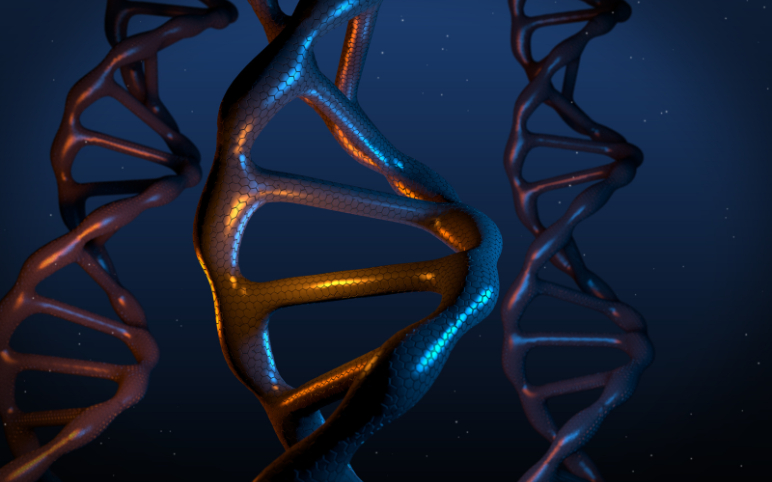
Limited Availability and Lack of Access are Unlikely to Hinder the Billion-Dollar Alpha-1 Antitrypsin Deficiency (AATD) Treatment Market

Apr 12, 2021
Alpha1-antitrypsin deficiency (AATD) was first identified by Carl-Bertil Laurell and Sten Eriksson (Laurell and Eriksson 1963) in 1963, who discovered a link between low plasma serum AAT levels and pulmonary emphysema symptoms. With time as the understanding of the genetic abnormalities grew, AAT deficiency came to be recognized as one of the most common hereditary disorders globally.
What is Alpha-1 antitrypsin deficiency?
As the name suggests, Alpha1 antitrypsin deficiency (AATD) is a hereditary disorder that is characterized by a lack or deficiency of alpha 1 antitrypsin in the blood, a protein that is important for the proper and healthy functioning of the lungs.
Article in PDF
What is the role of alpha 1 antitrypsin (A1AT) protein?
Alpha 1 antitrypsin, abbreviated as AAT is a protein that is produced in the liver and is transported to the lungs via the bloodstream. It is the most abundantly found serine protease inhibitor (serpin) and an acute phase reactant. Low levels of AAT can lead to damages to the lungs, causing problems in breathing, respiratory infections, inability to exercise, fatigue, and others. Further, research over the decades has demonstrated several functions of the protein ranging from managing and regulating immunity, inflammation, proteostasis, apoptosis, and cellular senescence program.
What are the symptoms of AATD?
Signs and symptoms of Alpha 1 antitrypsin deficiency include:
What are the causes of Alpha-1 antitrypsin deficiency?
AATD is caused by mutations in the SERPINA1 gene, which is inherited in a codominant manner. Mutational changes in the gene lead to an abnormal buildup of the protein in the liver, ultimately leading to low serum levels of A1AT. It also gets deposited in the liver leading to scarring of the liver. To date, more than 150 mutations in the SERPINA1 gene have been identified, with S and Z being the most common ones.
What is the prevalence of AATD?
The prevalence of Alpha 1 antitrypsin deficiency varies with the population origin. As per the statistics from research, AATD affects about one in 1500 to 3500 individuals with European ancestry. It is relatively uncommon in Asians. However, the disorder runs in families and many patients remain in dark about their condition. As per DelveInsight’s epidemiological analysis, the total number of AATD prevalent cases in the 6 MM (the US, and EU5 (Germany, France, Spain, Italy and the UK)) was found to be 175,009, in the year 2017.
How is it diagnosed?
Early diagnosis can help patients prevent serious lung diseases due to AATD. To confirm the diagnosis of the condition, diagnostic testing of individuals with symptoms/signs consistent with AAT-related disease; 2) predispositional testing of individuals who may be at high risk of having AATD such as patients suffering from chronic obstructive pulmonary disease, nonresponsive asthma, cryptogenic cirrhosis/liver and so on and 3) screening can be performed. However, the condition remains largely underdiagnosed.
At the moment, there is no cure for the condition. The treatment largely varies with the severity and symptoms presented in individuals. The therapies aim to slow down and prevent serious lung damages and address associated complications. Life-long treatment with augmentation therapy, inhaled bronchodilators, inhaled steroids, oxygen therapy, pulmonary rehabilitation and in severe cases lung transplant are some of the available treatment options for Alpha 1 antitrypsin deficiency.
What are the FDA-approved treatments for AATD?
The USFDA approved medications in the Alpha 1 antitrypsin deficiency market comprise four augmentation therapies namely:
Prolastin is available in the Alpha 1 antitrypsin deficiency market since 1988 and is marked with a high safety record. Other therapies have been approved after demonstrating their tolerability and safety comparable to Prolastin.
The Alpha 1 Antitrypsin Deficiency Treatment market appears to be firm as DelveInsight estimates that key therapies by the pharmaceutical companies including Grifols, Takeda Pharmaceutical, Kamada Pharmaceuticals, GlaxoSmithKline Plc., AstraZeneca, Boehringer Ingelheim GmbH, Pfizer Inc., Shire, LFB Biotechnologies, Alnylam Pharmaceuticals, Arrow Head Pharmaceuticals, Vertex Pharmaceuticals, Mereo Biopharma, Dicerna Pharmaceuticals, Inhibrx, Teva Pharmaceutical Industries Ltd., and LFB Biomedicaments S.A., among others take charge of propelling the growth of the Alpha-1 Antitrypsin Deficiency market size ahead.
What are the pipeline therapies in the AATD market?
There are several emerging therapies on the horizon expected to set their foot in the AATD market in the next decade. Some of those are as follows:
| Therapy | Company | Phase |
| DCR-A1AT | Dicerna Pharmaceuticals | Phase I and Phase I/II |
| INBRX-101 | Inhibrx | Phase I and Phase I/II |
| VX-864 | Vertex Pharmaceuticals | Phase II and II/III |
| ARO-AAT Injection | Arrowhead Pharmaceuticals | Phase II and II/III |
| Kamada-AAT for Inhalation | Kamada | Phase III |
From the date AATD was first described, it has been extensively investigated and it is not wrong to say that substantial strides have been made in understanding the detection of individuals, pathobiology, molecular biology, and treatment of AATD. At present, augmentation therapy is the cornerstone of the treatment of Alpha 1 antitrypsin deficiency; however, the therapy is expensive and adds to the financial burden. Further, it is not clear as to whom it should be administered. Although the options are limited in the present Alpha 1 antitrypsin deficiency market, the development of gene therapy, siRNA technology and other advanced novel therapies show real promise in the future.
Article in PDF


